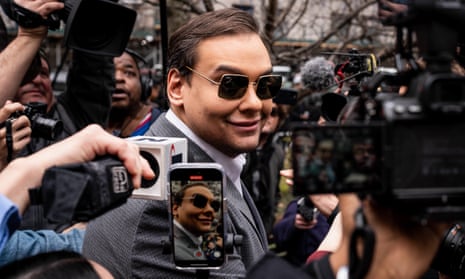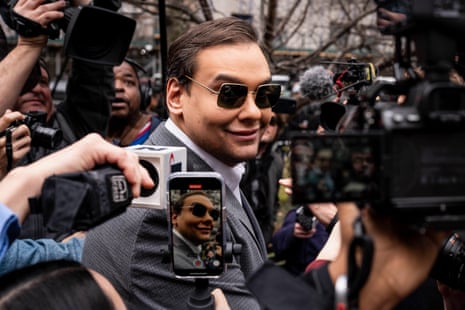The Supreme Court of the Russian Federation (SC) will decide whether sanctioned banks have the right to charge fees for storing US dollars in the accounts of legal entity clients. Due to sanctions, most of the largest Russian banks cannot conduct transactions with dollars; they can only be cashed out in the Russian Federation in rubles. Moreover, in order to speed up the process of dedollarization, banks were given the right to charge fees for storing foreign currency of legal entities. The Bolshevichka factory, which kept the dollars in the account, is trying to challenge this commission from Sberbank. The lower courts sided with the bank, but following a complaint from the company, the case was referred to the Supreme Court. Lawyers believe that his decision will determine the approach to other similar cases.
The Supreme Court will consider the dispute between Bolshevichka JSC and Sberbank regarding the legality of introducing a commission for storing US dollars in an account. The account was opened in 2008. In the spring of 2022, Sberbank came under US sanctions, which is why it could no longer conduct transactions in American dollars – neither settlements nor transfers to other credit institutions.
In parallel, from March 10, 2022, the Central Bank of the Russian Federation introduced a temporary procedure for transactions with cash currency for Russian legal entities and individual entrepreneurs, which was extended until March 9, 2024. These rules allow you to withdraw funds from foreign currency accounts only in rubles, and in US dollars, euros, yen and pounds sterling – only for foreign business trips up to $5 thousand. The restrictions in the Central Bank were explained by anti-Russian sanctions that prohibit domestic financial institutions from purchasing cash currencies of Western countries .
And in July 2022, amendments were adopted to the Russian law on banks, which gave them the right to introduce a commission for storing deposits of legal entities in foreign currency, including under agreements concluded before these amendments. This was also taken advantage of by Sberbank, which in July 2022 introduced a fee of 0.2% of the amount, and in September raised it to 0.5%. For July-December 2022, 7.6 million rubles were written off from the Bolshevichka account. as a commission.
Bolshevichka is one of the oldest clothing factories in Russia, specializing in sewing men's suits and outerwear. According to SPARK, in 2021 the main owner of the company was Omnibus and Co. JSC. with a share of 50.4%. The company's revenue for 2022 amounted to 479.2 million rubles, net profit – 42.17 million rubles.
The company filed a lawsuit to recover the funds with interest, considering them unjust enrichment of the bank. In court, Bolshevichka JSC explained that since June 6, 2022, no transactions have been made on this account; there was no opportunity to pay with this money or transfer it to other banks. “Based on clause 5.1 of the agreement, in the circumstances that developed after February 24, 2022, the defendant should have notified the client about the risks associated with maintaining a foreign currency account and offered to either withdraw funds from the account or renew the agreement on new terms, giving the plaintiff the right to choose,” – they say in Bolshevichka. However, the company clarified, it did not receive such a notification, and from July 1, the bank unilaterally introduced a commission, which violates the “principle of good faith.”
The arbitration courts recognized the commission as legal, noting that the bank announced on the website about the change in tariffs and notified the plaintiff on June 15, 2022 “through remote banking channels.” The amendments, which secured the right of banks to charge a commission for maintaining deposits of legal entities in foreign currency (including under previously concluded agreements), were adopted “in order to reduce the burden on the financial system,” the decisions explain.
The courts also agreed with Sberbank’s arguments that the tariffs were “revised due to the introduction of sanctions, as a result of which banks cannot increase foreign currency assets or conduct transactions in foreign currency.” “Under the current conditions, Sberbank is forced to place the liabilities of legal entities (clients) in foreign currencies in nostro accounts and on financial markets at a negative rate,” says the judicial acts.
The “Bolshevik” appealed to the Supreme Court, considering it illegal to restrict her ability to manage her money. The complaint notes that “under normal conditions, if the client disagrees with the tariffs introduced by the bank, the client has the right to terminate the bank account agreement and withdraw the funds,” but here the increased commission was established “after the plaintiff lost the opportunity to transfer the currency to another account or demand its release upon termination of the contract.” “As a result, the plaintiff found himself in an enslaving position, and the bank transferred its problems in relations with counterparties to him,” the company emphasized. In addition, in her opinion, the courts did not check the “economic justification for the specific value of the tariff applied by the bank.”
Deputy Chairman of the Supreme Court Irina Podnosova considered these arguments worthy of attention and referred the dispute to the economic board. The meeting is scheduled for April 10. Bolshevichka did not respond to Kommersant’s request; the bank declined to comment.
Lawyers call the case a precedent and expect the Supreme Court to provide guidance for resolving similar cases.
“The dispute about the unreasonable fee for storing dollars in a bank account is the first in the practice of the Supreme Court,” emphasizes the senior lawyer at BFL | Arbitrage.ru” Denis Danilov.
The problem concerns all corporate clients of banks subject to American sanctions. Mr. Danilov notes that such banks cannot transfer money in dollars due to sanctions, and business clients cannot withdraw funds in foreign currency due to restrictions of the Central Bank of the Russian Federation.
“On the one hand, the foreign currency funds of organizations were essentially frozen in their accounts in a practical sense, and on the other hand, certain incentive requirements were introduced that encouraged banks to get rid of currency rather than hoard it in their accounts,” explains partner Pen & Paper Stanislav Danilov. Moreover, commissions were introduced, including on foreign currency deposits opened before the adoption of the amendments, which put the business in a dead end, and “now this conflict has to be resolved by the Supreme Court,” says BGP Litigation lawyer Dmitry Usoltsev. He clarifies that according to the bank deposit agreement, the bank is obliged to return the deposit amount to the client, but “restrictions on the withdrawal of foreign currency and the introduction of a commission shift the balance of interests towards the bank, making deposit storage for corporate clients burdensome and economically inexpedient.”
There is no data on the volume of US dollars stuck in Russian banks, and therefore it is impossible to accurately assess the scale of the problem.
According to a Kommersant source in the market, “most clients have long since withdrawn funds from foreign currency accounts in rubles or transferred them to accounts in friendly currencies.”
Officially, the banks do not comment on the situation. A Kommersant source in the banking sector says that “commissions on foreign currency accounts are normal practice under sanctions, thus banks disincentivize businesses to hold foreign currency.” “According to the agreement, banks have the right to change tariffs for legal entities, the main thing is to notify the client in a timely manner about the introduction of such commissions,” added Kommersant’s interlocutor.
Stanislav Danilov clarifies that the bank should not abuse this right, that is, “you cannot shift your problems and losses to the client,” especially since “keeping money in foreign currency is not prohibited.” “Otherwise, your deposit can be cut off piece by piece until you come to your senses and exchange your dollars for rubles, or you will have zero left in your account,” the lawyer clarifies. Denis Danilov considers this situation “unfair for the bank’s clients.” According to Mr. Usoltsev, in any case, the court must study the economic justification for the specific amount of the commission.
“In essence, the Supreme Court will have to decide who will suffer losses from the introduction of sanctions and counter-sanction restrictions: the bank or its client,” points out Denis Danilov. Lawyers note that previously the practice was in favor of banks as the stronger party, but the latest positions of the Supreme Court on other commissions (for the transfer of funds by legal entities in favor of individuals) indicate a change in the trend (see Kommersant on January 18). “Apparently, the political weather vane has changed a little,” believes Stanislav Danilov. “Probably, unexpected losses will ultimately be borne by the banks, which, in principle, are doing quite well.”





























































Recent Comments